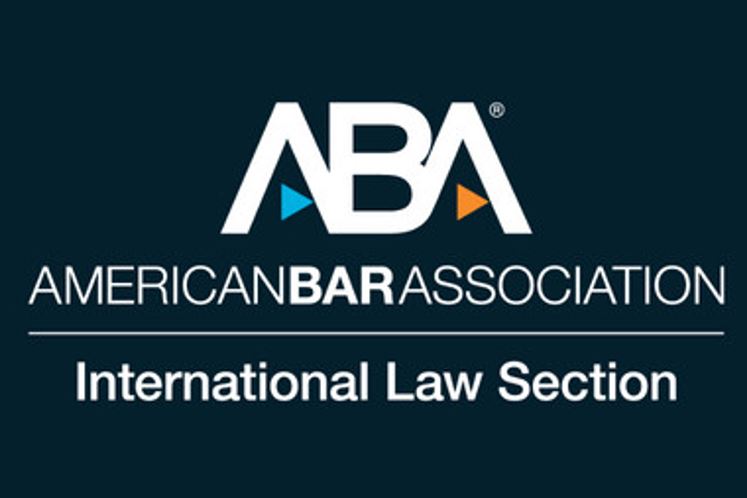I. Can allegations of corruption serve as a bar to jurisdiction of arbitral tribunals or admissibility of claims?
Allegations of corruption do not, as such, serve as a bar to jurisdiction of arbitral tribunals or prevent them from hearing the case.
The potential exception would be if the existence of corruption affects the validity of the arbitration agreement. The Swedish Arbitration Act lays down the general principle that an arbitration agreement incorporated into another agreement is considered a separate agreement when determining the arbitrators’ jurisdiction (the separability doctrine). This means that issues regarding the validity, existence, or termination of the main contract generally do not affect the arbitration agreement itself – also for reasons of corruption. But if the corruption in question would be deemed to render the agreement in its entirety (i.e. including the arbitration agreement) null and void, the tribunal’s jurisdiction will consequently fall as well.
Arbitrators have the authority to determine their own jurisdiction, including addressing any challenges to the validity of the arbitration agreement. If arbitrators decide they have jurisdiction, any party disagreeing with this decision can request the Court of Appeal to review it. Such a request must be made within thirty days from when the party was notified of the decision. During this period, the arbitrators may continue the arbitral proceedings pending the court’s determination.
II. Can allegations of corruption affect the validity of an arbitral award?
In Sweden, an arbitration award is final and binding as of the day it is rendered, with no possibility to appeal on the merits. Like many jurisdictions, an award may, under certain circumstances, be set aside by Swedish courts, for example if the tribunal has exceeded its mandate or committed a procedural error. In addition, an award may also be annulled by a Swedish court on grounds of invalidity, without limitation in time after the issuance of the award, see further below.
One ground on which an award can be invalidated is that the arbitral tribunal has ruled on questions which are not arbitrable under Swedish law. While criminal proceedings are reserved for the courts, civil law implications of crimes, including allegations of corruption, are generally arbitrable under Swedish law.
A second ground for annulment is that the award violates Swedish public policy (ordre public). Such public policy violations may include situations where the claims in the underlying arbitrations have been based on criminal acts, for example an obligation to pay an agreed bribe. An award may also contravene public policy if it enforces a right based on an agreement involving immoral or illegal considerations (pactum turpe), which could be the case in a situation where the award or the underlying claims are tainted by corruption.
Importantly, allegations of corruption alone are typically not sufficient to invalidate an award. However, if corruption is proven, the arbitral award or parts thereof may indeed be invalid under the abovementioned circumstances. However, the mere existence of circumstances related to corruption in an arbitral award is not per se a violation of public policy.
III. In annulment or enforcement proceedings, can the court review the award and the merits to determine whether corruption or related offences affect the underlying dispute?
In annulment or enforcement proceedings, the court generally does not review the merits of the arbitration award, as arbitration awards are typically considered final and binding on the merits.
However, if the award is challenged on the ground that it violates Swedish public policy, the court is free to draw conclusions ex officio from whatever material and evidence that the court has access to. In such cases, however, the court’s mandate is not a re-evaluation of the merits of the case but simply a review of whether the award violates fundamental principles of public policy.
IV. Can courts review corruption allegations which have not been raised in the arbitration?
Yes, when assessing if an award violates public policy, Swedish courts may review most types of corruption allegations ex officio, even if these allegations were not raised during the arbitration process. Under this scrutiny, the court is not bound by the arbitrators’ conclusions. This means that claims of corruption can be brought before the court for the first time, regardless of whether they were raised during the arbitration.
V. Do courts defer to the arbitral tribunal’s finding that no corruption acts were committed?
No, in Sweden, the judicial review of an arbitral award for the purposes of a potential annulment (e.g. due to public policy concerns) is independent. Thus, the court is not bound by the findings of the arbitrators. Nevertheless, in practice, the court may give considerable weight to the arbitrators’ findings.
VI. Is there a standard of proof used by arbitrators and reviewing courts to assess the existence of corruption?
Swedish arbitration law does not set out specific standards of proof or rules of evidence in arbitration proceedings nor in annulment proceedings, including when ruling on claims related to allegations of corruption. However, the general rule with respect to standard of proof in civil proceedings is that a factual assertion must be “proven” or “shown” (Sw. styrkt or visat), which is a lower requirement than what applies in criminal proceedings.
Notably, with few exceptions, no evidence is inadmissible on the basis of its type or nature under Swedish law. Consequently, hearsay evidence, evidence wrongfully obtained and uncertified copies are generally admissible, both in court and in arbitral proceedings (unless the parties have agreed on other rules regulating the evidence in the arbitration). This flexibility allows arbitrators to consider a wide range of evidence, including when assessing allegations of corruption.
VII. Which method do arbitrators and reviewing courts employ to establish evidence of corruption?
In Sweden it is up to the parties to present and produce the evidence in arbitration proceedings. The arbitrators do not have a subsidiary statutory responsibility to carry out any investigation. Arbitrators in Sweden may appoint experts, but this is subject to the condition that neither party objects to such appointment.
Moreover, in civil proceedings in Swedish courts, the parties generally bear the full responsibility of presenting factual evidence to the court. The court thus has no mandate to seek evidence on its own.
Although Swedish courts have the authority to review most types of corruption allegations ex officio, they do not independently conduct extensive investigative measures to assess these allegations. The burden of proof typically rests with the party alleging corruption. Consequently, the party making the allegation must provide sufficient evidence to support its claim.
Under the principle of the free evaluation of evidence, both judges and arbitrators are allowed to assess the evidence presented independently, without being bound to any method or particular standard. That being said, there is case law from the Swedish Supreme Court that provides general guidance on how to examine evidence.
VIII. Are arbitrators seated in your jurisdiction bound by criminal proceedings on issues that could impact the underlying arbitration dispute?
Under Swedish law, arbitrators do not have jurisdiction to rule on criminal charges, as these matters fall outside the scope of arbitration. However, arbitrators can address and rule upon the civil law consequences that arise from criminal offenses.
In Sweden, a criminal proceeding only constitutes res judicata with respect to criminal liability. As such, it does not formally bind an arbitral tribunal in a subsequent arbitration. For example, in a case where a claimant seeks damages on the basis that the respondent allegedly committed a crime, the arbitrators may award damages on such grounds even if the respondent was acquitted in the prior criminal proceeding. Likewise, in theory, the arbitral tribunal may find that no criminal offence was proven, even if the respondent was previously convicted in a criminal proceeding.
Nevertheless, a prior criminal proceeding may serve as evidence in the subsequent civil proceeding. In practice, a prior judgment in a criminal proceeding typically carries high evidentiary value and it can be assumed that most arbitrators will be reluctant to create an inconsistency between the criminal proceeding and the arbitral proceeding.
IX. To what extent do they rely on or defer to findings from parallel criminal investigations?
As stated above, an arbitral tribunal is not bound by a criminal proceeding as such. Arbitrators are, however, allowed to review findings from parallel criminal proceedings if these facts are submitted by the parties to the arbitration and the tribunal can use such information as evidence in its own, independent, assessment of the facts.
Swedish arbitral tribunals are not obliged to suspend their proceedings pending the outcome of a criminal court decision, regardless of whether the decision is from a domestic or foreign court.
X. Are remedies available when an arbitral tribunal rules that there is no evidence of corruption but subsequently a criminal ruling decides otherwise?
In Sweden, the sole remedy available in the case of a contradiction between an arbitral award and a subsequent criminal ruling is to seek an annulment of the award, for example on the basis that the award is a violation of Swedish public policy.
To successfully annul an arbitral award, it must be proven that the specific circumstances relied upon justify the invalidity of the award. This means that the party challenging the award must demonstrate that the criminal ruling establishing corruption directly impacts upon the integrity and fairness of the arbitral award.
Unlike other jurisdictions, Swedish arbitration law does not impose a specific time-limit for an annulment of an arbitral award on grounds of invalidity. This provides an opportunity for parties to challenge the award also when new evidence, such as a subsequent criminal ruling, comes to light.


